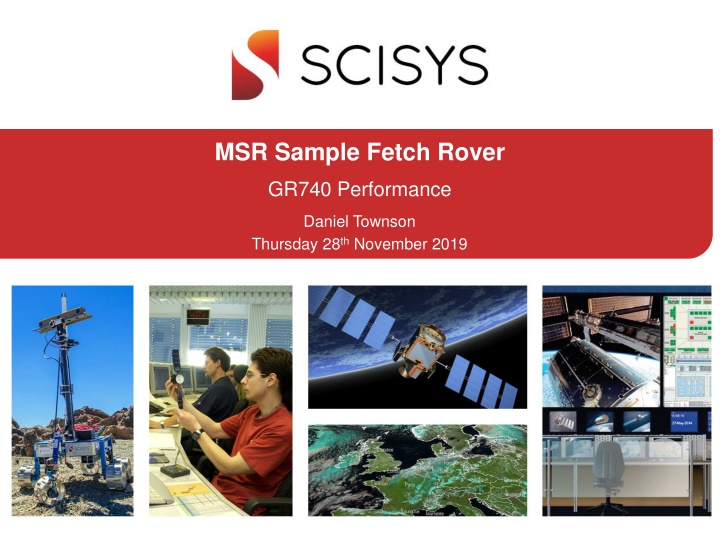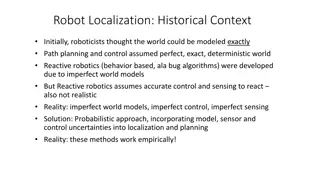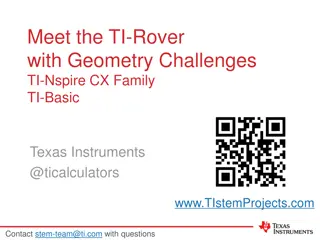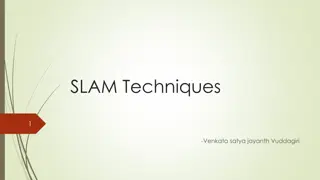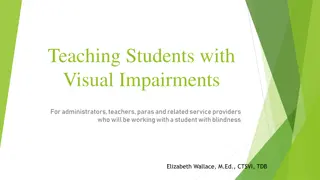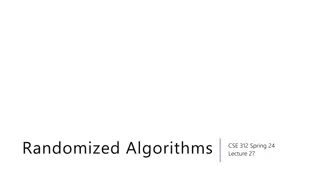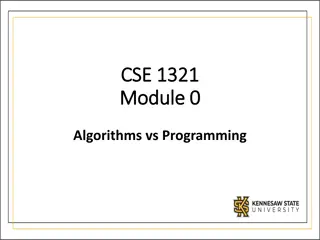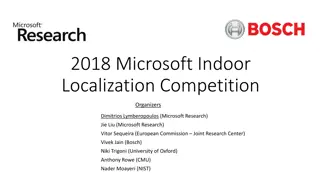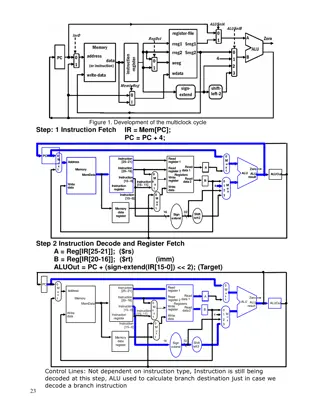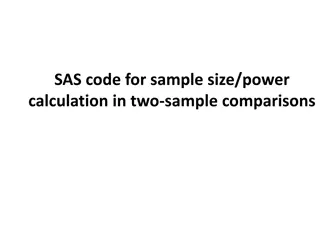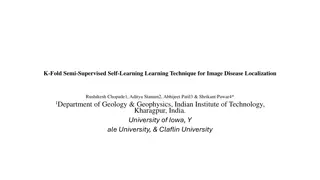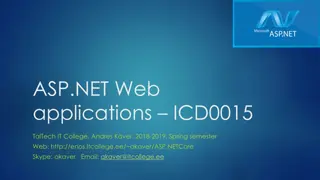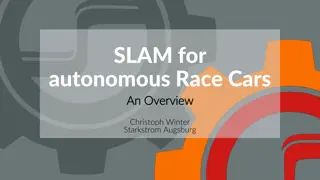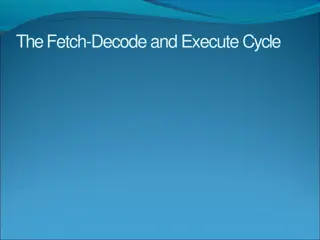Comparison Study Between ExoMars and Sample Fetch Rover Visual Localization Algorithms
Two space projects, ExoMars and Sample Fetch Rover, are compared based on their Visual Localization algorithms. The study focuses on the timing performance, ease of use, and consistency with previous results of the GR740 processor. Visual Odometry and challenges like motion blur and lighting differences are discussed. The breadboarding activity aims to compare the GR740 processor to previous LEON processors for flight algorithms. Airbus provided test trajectories for data comparison.
Download Presentation

Please find below an Image/Link to download the presentation.
The content on the website is provided AS IS for your information and personal use only. It may not be sold, licensed, or shared on other websites without obtaining consent from the author.If you encounter any issues during the download, it is possible that the publisher has removed the file from their server.
You are allowed to download the files provided on this website for personal or commercial use, subject to the condition that they are used lawfully. All files are the property of their respective owners.
The content on the website is provided AS IS for your information and personal use only. It may not be sold, licensed, or shared on other websites without obtaining consent from the author.
E N D
Presentation Transcript
MSR Sample Fetch Rover GR740 Performance Daniel Townson Thursday 28thNovember 2019
ExoMars Vs SFR Two projects to talk about, both based on VisLoc LEON2 based ExoMars flight implementation LEON4 based Sample Fetch Rover Breadboard A comparison between the two MSR Sample Fetch Rover VisLoc UBB TRR 19 September 2019 2
Scope There are limits on what can be said about VisLoc: The algorithm itself is covered by heavy DNAs It currently part of a competitive breadboarding activity Instead we focus on: The timing performance of the algorithm The ease of use of the GR740 The consistency with previous results MSR Sample Fetch Rover VisLoc GR740 28 November 2019 3
Visual Odometry By tracking features between a sequence of stereo images we can estimate the motion of the rover in 6 degrees of freedom. MSR Sample Fetch Rover VisLoc GR740 28 November 2019 4
Visual Odometry MSR Sample Fetch Rover VisLoc UBB TRR 19 September 2019 5
SFR SFR provides a larger challenge compared to ExoMars in a number of ways: Faster 6 to 10 times faster Less execution time Motion blur Wider Lighting Range Optical Depth Dust storms Motion Blur - Longer shutter speeds Darker - Less detail Harder VO, less time MSR Sample Fetch Rover VisLoc UBB TRR 19 September 2019 6
Breadboard Based on a GR-CPCI-GR740 board independently (by TAS) tailored to be flight representative. On both AT697f and GR740 Visloc only uses a single core So, sorry, we can say very little about multicore The three other cores are reserved for other GNC functionality MSR Sample Fetch Rover VisLoc UBB TRR 19 September 2019 7
Overview This breadboarding activity provides a great opportunity to compare the GR740 to previous LEON processors using a significant realistic flight algorithm A flight ready VisLoc solution exists targeted at a LEON2 (AT697f) This will be the VO solution on ExoMars We have a wealth of validated data with which to compare The breadboarding activity is aimed at porting this solution to the GR740 Airbus have provided a significant set of test trajectories to produce data to compare MSR Sample Fetch Rover VisLoc GR740 28 November 2019 8
Numeric Performance Our focus today isn t on the accuracy of the algorithm, but we can say: We have a LEON2 solution qualified for use on Mars The GR740 implementation has been shown to produce the same output Over 100,000 frames (image pairs) So this was great news for us and the GR740 MSR Sample Fetch Rover VisLoc GR740 28 November 2019 9
Nave Timing Estimate Prior to the breadboarding we were asked to make a prediction of the performance of VisLoc on a GR740 @ 250Mhz The WCET LEON2 AT697f @ 96Mhz : ~3800ms 96 250 3800 1400 We fully appreciate this is a very na ve approach, but to get a more realistic result you need the actual processor So we entered the breadboarding activity expecting to have to reduce the accuracy of VisLoc in order to accelerate it MSR Sample Fetch Rover VisLoc GR740 28 November 2019 10
Actual Timing Results When tested on the GR-CPCI-GR740 board : WCET 1100ms Mean 740ms The bulk of the breadboarding activity for SCISYS was a parameter tuning exercise, with moderate changes we actually achieved : WCET 900ms (2 frames over) MSR Sample Fetch Rover VisLoc GR740 28 November 2019 11
Timing Success In simple terms, for VisLoc, there is a trade off between accuracy and execution time. The performance of the GR740: Very nearly met the initial target WCET (900ms) Comfortably met a revised target WCET of (1000ms) SCISYS did not request the revised target Even allowed us to tune the algorithm for accuracy rather than speed MSR Sample Fetch Rover VisLoc GR740 28 November 2019 12
Accounting for Performance There were reasons we might expect the GR740 to perform worse than we predicted: Clock multiplication pretty na ve In some sense a best case Breadboard configured to reflect flight expectations Memory bandwidth reduced In the event we actually saw a significant improvement: FPU AT697f blocking where as the GR740 is not Clock cycles per instruction improved FPU and Integer Compiler GCC 7.2.0 vs 3.2.3 Level 2 cache GR740 has a 2MB level 2 cache whereas the AT697f has only a level 1 cache MSR Sample Fetch Rover VisLoc UBB TRR 19 September 2019 13
Usability A few quick comments on using the board and tools Generally a very good experience for us Quick, comprehensive support Biggest issue was resolving GRMON licence problems Clear, complete documentation Well done Cobham-Gaisler MSR Sample Fetch Rover VisLoc UBB TRR 19 September 2019 14
Thanks MSR Sample Fetch Rover VisLoc UBB TRR 19 September 2019 15
Conclusion Our experience with the GR740 was a very positive one: The porting of a complex algorithm was straight forward and well supported The numeric performance was consistent The timing performance exceed our expectations And enabled a more accurate solution MSR Sample Fetch Rover VisLoc UBB TRR 19 September 2019 16
